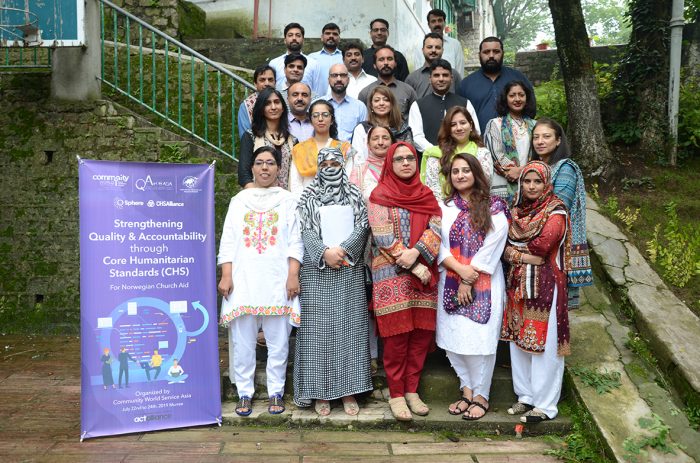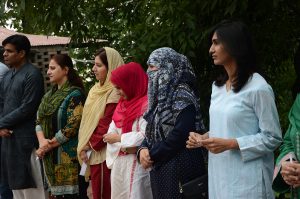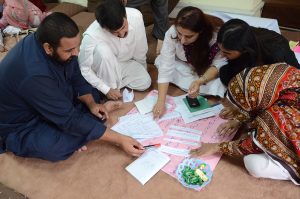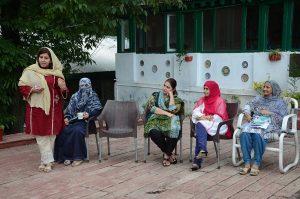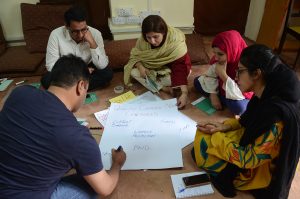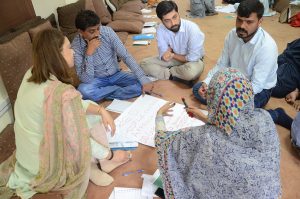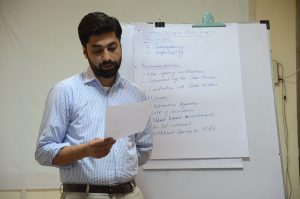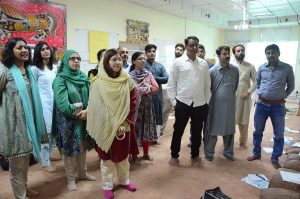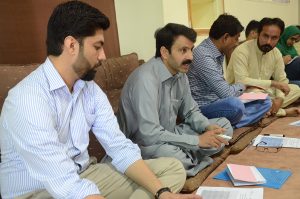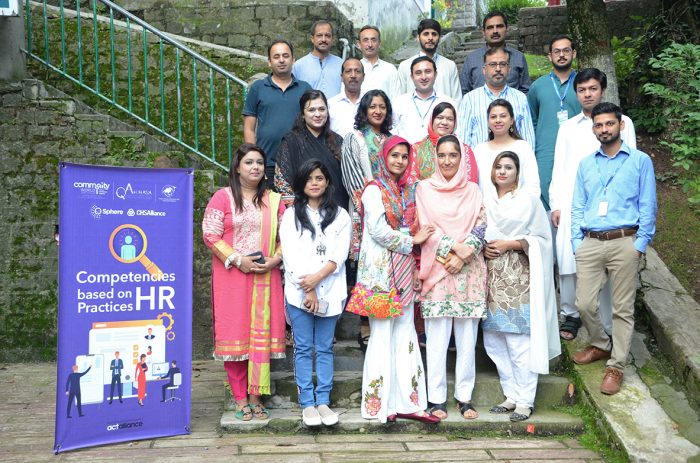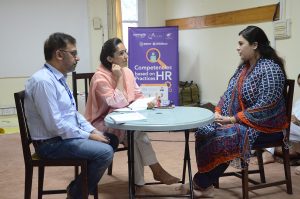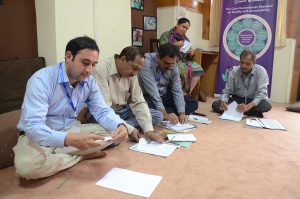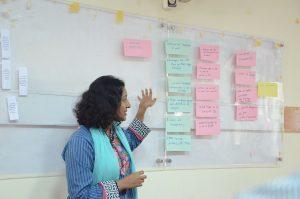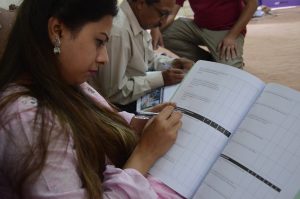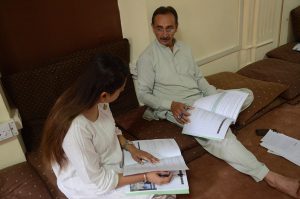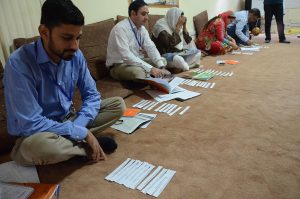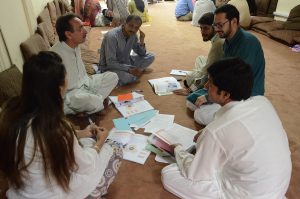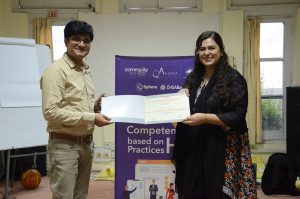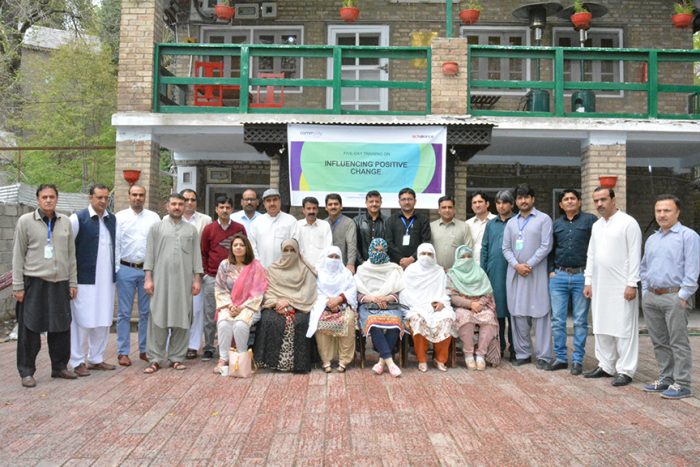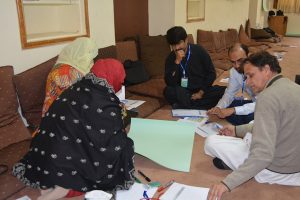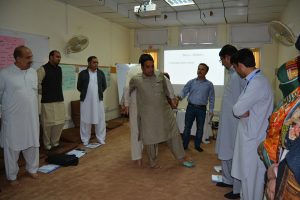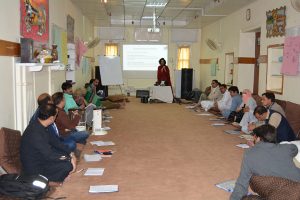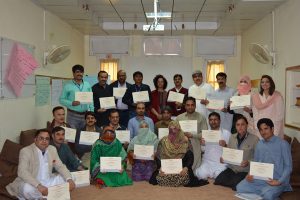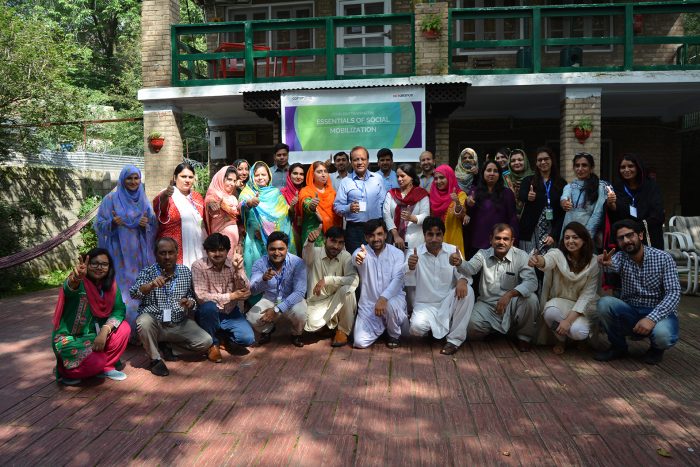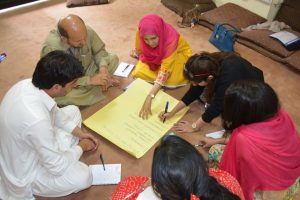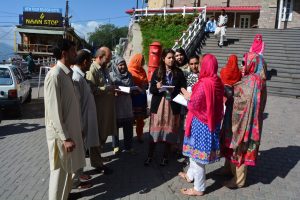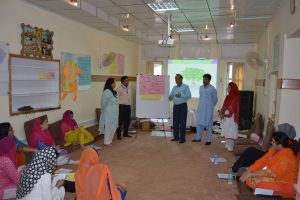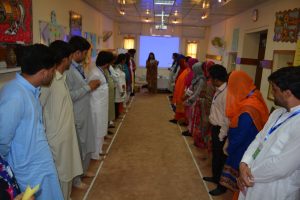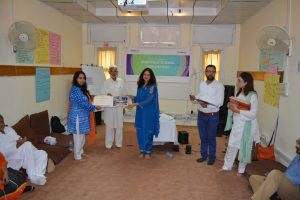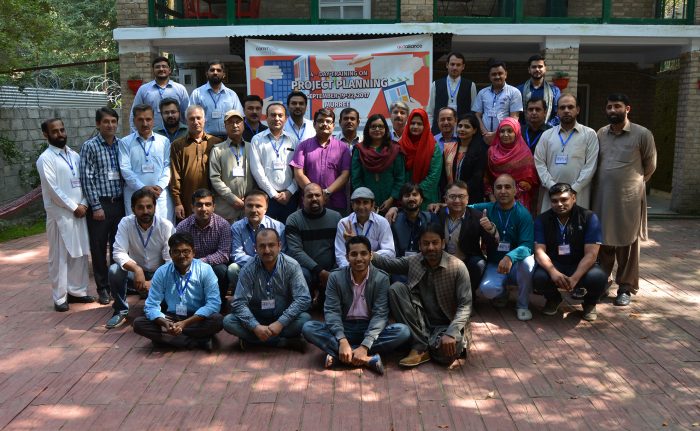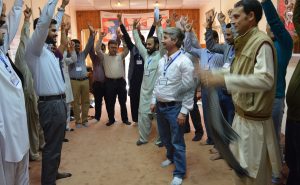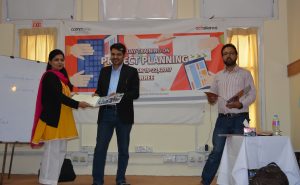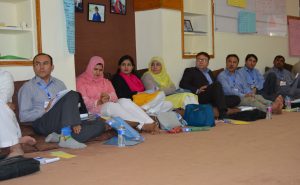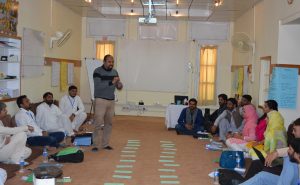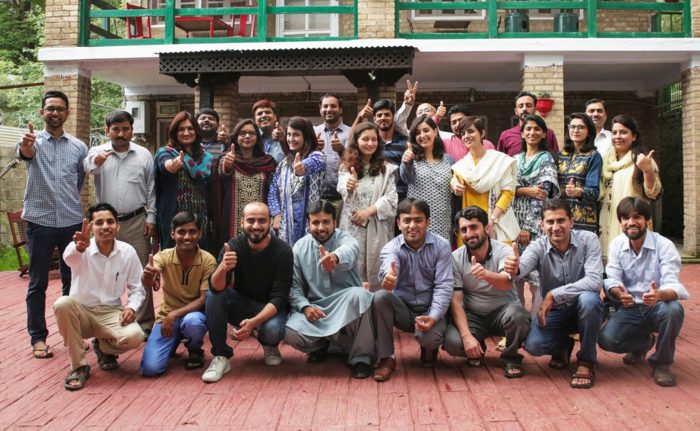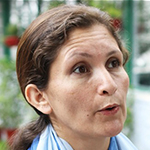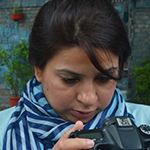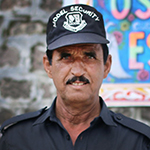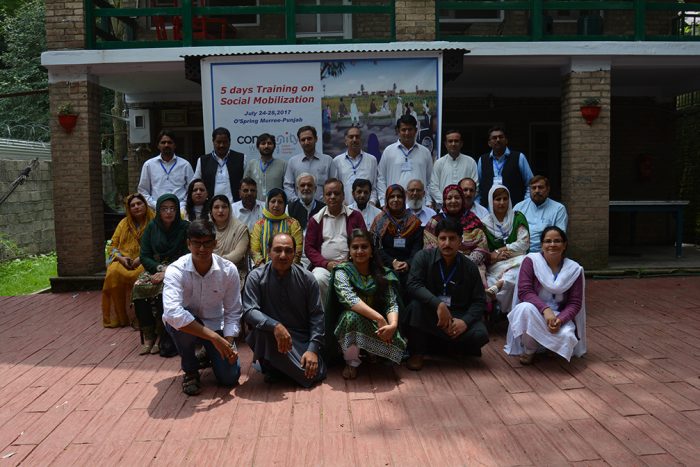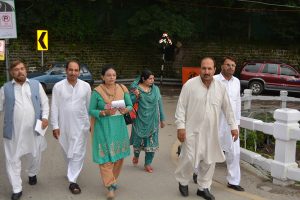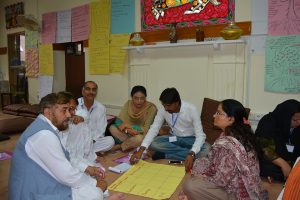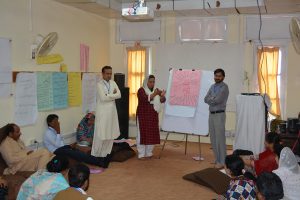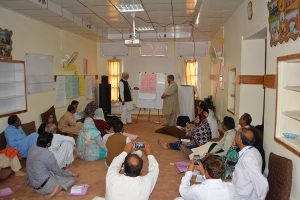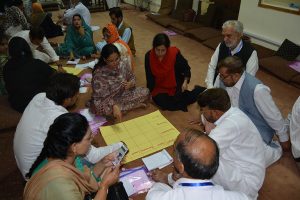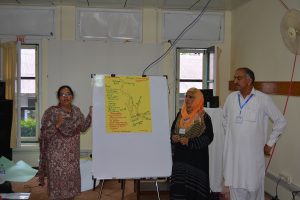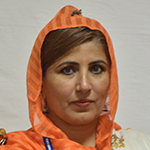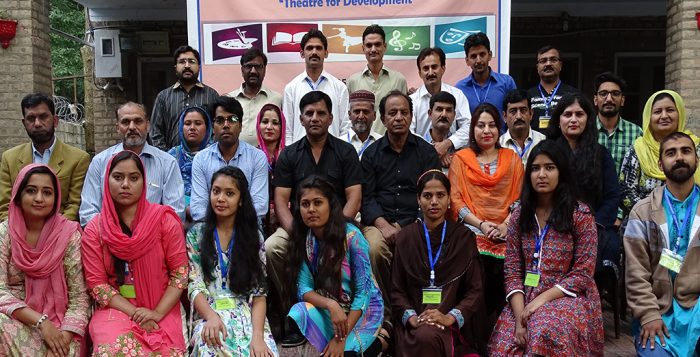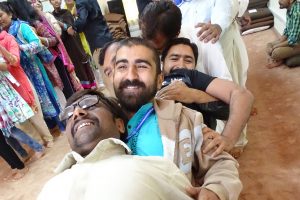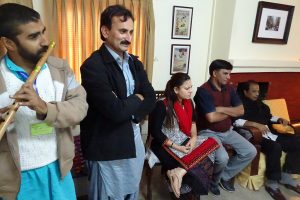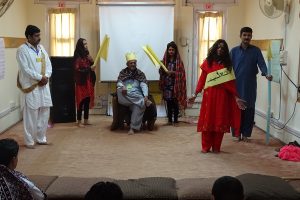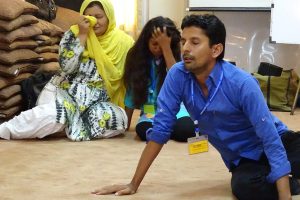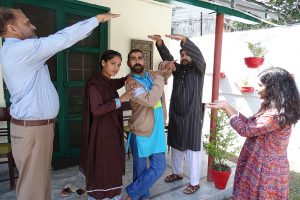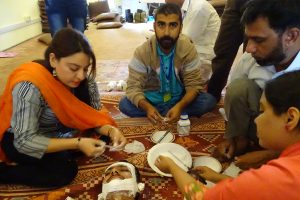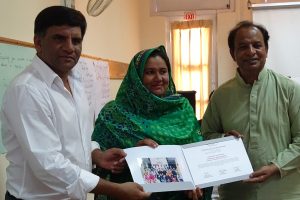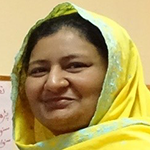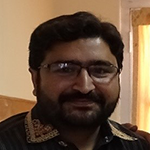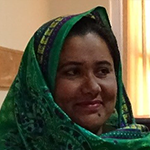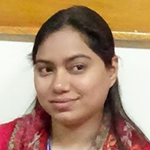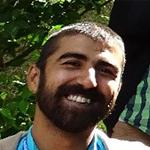Organizations want to be strongly committed to international quality and accountability initiatives when responding to humanitarian crises for a more sustainable impact on the lives of affected populations and towards its implementing partners and staff. For this reason, the Core Humanitarian Standard (CHS) on Quality and Accountability (Q&A) guides organizations and individuals how to ensure they deliver quality, effective and accountable humanitarian responses. The nine commitments of the CHS, supported by guidance notes and indicators, provide a detailed information for organizations demonstrating how humanitarians can deliver high-quality programmes consistently and be accountable to those they assist. The people affected by crisis are put at the center of humanitarian action and the respect of their fundamental human rights is promoted through the CHS.
To work consistently to improve the quality and accountability in humanitarian responses, Community World Service Asia organized a 3-Day Workshop on Quality and Accountability for Project Management for the Norwegian Church Aid (NCA) staff and its partners. Twenty-five participants from 16 organizations gathered in Murree from 22nd till 24th of July, 2019 to mainstream CHS and its nine commitments for better quality and greater accountability in all aspects of engagement with communities and people affected by crisis.
The training introduced the Humanitarian Principles of humanity, neutrality, impartiality and independence, that offered a common basis to underpin all humanitarian action. Participants were divided in groups of 4 each, where they discussed each principle and what it meant to them. The session reaffirmed the importance of promoting and respecting these principles within the framework of humanitarian assistance. The training elaborated each commitment of the CHS to assess and ensure the quality of our work, to reduce the risk of mistakes, abuse and corruption, and continuously improve our work – for the benefit of the participants’ organizations and the people they work for.
In the session on Core Commitment 1, participants were divided in four groups where two groups discussed projects which took people-centered approach and the other two discussed projects that did not consider people-centered approach. The group discussions unfolded the importance of relevancy and appropriateness of humanitarian response to cater the needs of the affected communities. In another group activity under Core Commitment 2, two groups of men participants debated against the two women participants’ groups. Two groups were for and the other two were against the statement: “Communities and affected people have access to the assistance they need at the right time”. Through this session, participants were trained to design programmes that address constraints for proposed actions to be realistic and safe for communities. In addition, the debate highlighted the significance of delivering humanitarian response in a timely manner, making decisions and acting without unnecessary delay.
Formal mechanisms for complaints and redress are an essential component of an agency’s accountability and give affected communities some element of control over their lives. Participants shared some constraints people face that prevent them from lodging complaints. Some challenges included fear, job insecurity, cultural barriers, no response from concerned departments and sympathy. On day 3 of the training, the fish bowl activity was conducted where the partners of NCA formed a circle to share their relationship with NCA. Uma Naraynan, the training facilitator said, “The purpose of the exercise is to share opinions equally to maintain accountability.” Partners shared that NCA provides technical support when required and frequent visits are planned with timely feedback. Moreover, NCA respects their organizational mandate. Some recommendations were also shared including policy and SOPs orientation, guidelines for improved and consistent reporting and provision of field level training in relation to reporting and mobilization. The NCA representatives formed a circle in response to share their feedback with partner organizations. Some of the feedback was focused on building understanding of grant agreements and developing clarity of deliverables and reporting. In addition, NCA requested partner representative to share capacities and exposure of staff in order to enhance skills.
At the end of the training, participants prepared action plans on how they aim to implement the learnings of the CHS training and incorporate the nine commitments and the four humanitarian principles in their organizational systems and programs. The training concluded with a ceremony of certificate distribution.
Participants Voices:
“We have been implementing the Core Humanitarian Standards in our organization but were not aware of the CHS structure of nines commitments. In the training, we learnt to review and ensure our programs’ quality and accountability in accordance to the nine commitments and the humanitarian principles.”
Pirbu Satyani, Regional Coordinator, Strengthening Participatory Organization (SPO)
“Bargad is involved in a range of projects. We have been implementing the nine commitments of CHS throughout our projects. However, this training provided us with clarity regarding the CHS structure and the humanitarian principles to improve our organizational systems and practices in accordance to the Core Humanitarian Standard and promote quality and accountability in humanitarian response.”
Usman Yunus, Program Coordinator, Bargad
“The key learnings from the 3-day Q&A workshop were, firstly, the importance of identifying the needs of the communities we are working in. If we are working in communities without knowing the needs, our efforts are not productive and effective. Secondly, the significance of stakeholders as we are working in collaboration with them on various projects. Lastly, it is essential for projects to be relevant and appropriate to meet the needs of the communities and affected people by crisis.”
Zara, Manager Human & Institutional Development, Civil Society Support Program





